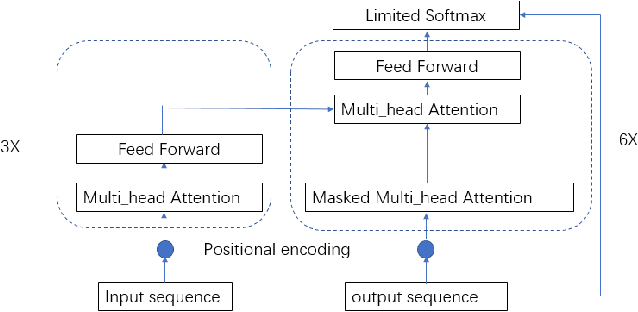An End-to-end Approach for Lexical Stress Detection based on Transformer
Paper and Code
Nov 06, 2019



The dominant automatic lexical stress detection method is to split the utterance into syllable segments using phoneme sequence and their time-aligned boundaries. Then we extract features from syllable to use classification method to classify the lexical stress. However, we can't get very accurate time boundaries of each phoneme and we have to design some features in the syllable segments to classify the lexical stress. Therefore, we propose a end-to-end approach using sequence to sequence model of transformer to estimate lexical stress. For this, we train transformer model using feature sequence of audio and their phoneme sequence with lexical stress marks. During the recognition process, the recognized phoneme sequence is restricted according to the original standard phoneme sequence without lexical stress marks, but the lexical stress mark of each phoneme is not limited. We train the model in different subset of Librispeech and do lexical stress recognition in TIMIT and L2-ARCTIC dataset. For all subsets, the end-to-end model will perform better than the syllable segments classification method. Our method can achieve a 6.36% phoneme error rate on the TIMIT dataset, which exceeds the 7.2% error rate in other studies.
 Add to Chrome
Add to Chrome Add to Firefox
Add to Firefox Add to Edge
Add to Edge